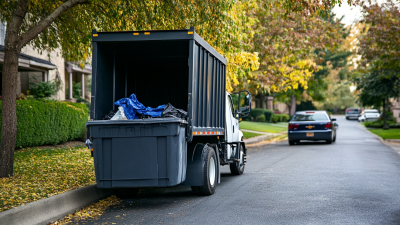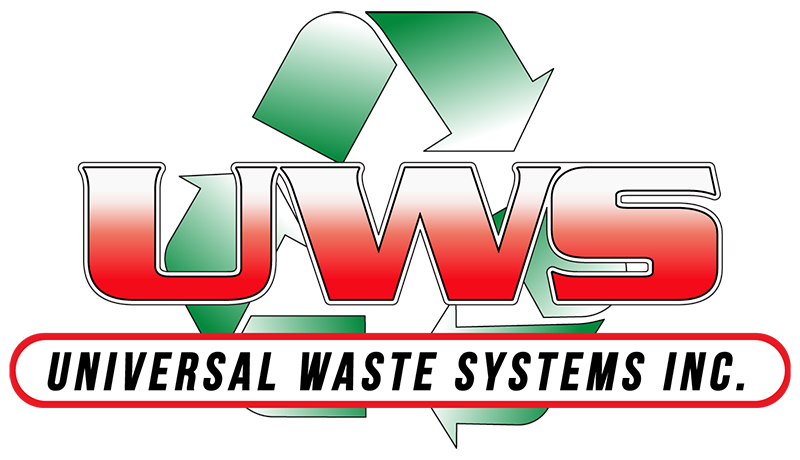Blog
Advantages of Efficient Waste Pickup Solutions for Sustainable Business Practices
As businesses increasingly recognize the importance of sustainability, the implementation of efficient waste pickup solutions has emerged as a significant advantage in sustainable business practices. According to the World Economic Forum, approximately 2.01 billion tons of municipal solid waste are generated globally each year, with at least 33% of that not managed in an environmentally safe manner. This inefficiency not only contributes to environmental degradation but also represents a missed opportunity for businesses to enhance their operational effectiveness and sustainability.

Efficient waste pickup systems can lead to reduced operational costs, improved resource recovery, and a lower carbon footprint, as emphasized in the 2021 Global Waste Management report. By innovating waste pickup strategies, companies can transform waste management from a burden into a strategic asset, promoting both environmental responsibility and long-term economic viability.
Benefits of Implementing Smart Waste Management Technologies
The implementation of smart waste management technologies is revolutionizing the way businesses approach waste disposal and recycling. By leveraging IoT (Internet of Things) devices and data analytics, companies can optimize waste collection schedules and routes, significantly reducing fuel consumption and operational costs. These technologies enable real-time monitoring of waste levels, allowing for proactive adjustments that ensure bins are emptied before they overflow. This not only maintains cleanliness in the workplace but also enhances customer satisfaction, as it promotes a more appealing and hygienic environment.

Moreover, smart waste management solutions contribute to better resource management and sustainability. By accurately tracking waste generation patterns, businesses can identify opportunities for reducing waste and improving recycling rates. Advanced sorting technologies, such as AI-based sorting systems, help separate recyclables from general waste more efficiently, minimizing contamination.
The transition to digital waste management not only supports environmental goals but also aligns with corporate social responsibility initiatives, reinforcing a company's commitment to sustainable business practices. Ultimately, adopting these intelligent systems fosters a culture of sustainability that can improve brand image and consumer trust.
Case Studies of Businesses Utilizing Efficient Waste Collection Methods
As businesses increasingly recognize the importance of sustainable practices, many are turning to efficient waste collection methods to enhance their environmental impact. Case studies reveal that organizations adopting electric waste collection vehicles are not only reducing their carbon footprints but also showcasing innovative alternatives to traditional waste management techniques.
These electric vehicles significantly lower emissions, contributing to cleaner air and quieter neighborhoods, making them an attractive option for urban settings.
Moreover, the introduction of these electric garbage trucks has been met with positive feedback from the communities they serve. Businesses leveraging such technology illustrate a commitment to sustainability while achieving operational efficiency. By implementing these advanced waste collection solutions, companies are setting a precedent for other organizations aiming to adopt greener technologies. The shift to electric waste collection represents a vital step towards sustainable business practices, demonstrating that profitability and environmental responsibility can go hand in hand.
Innovative Waste Reduction Strategies for a Greener Future
In today's rapidly changing environmental landscape, businesses are embracing innovative waste reduction strategies to forge a greener future. One key approach is the implementation of the circular economy model, which emphasizes reusing and recycling materials rather than disposing of them. By encouraging the design of products with their end-of-life in mind, companies can significantly minimize waste generation. This strategy not only conserves natural resources but also fosters a more sustainable business ecosystem, bridging the gap between traditional practices and new, eco-friendly methodologies.

Another effective strategy is the adoption of cutting-edge waste management technologies. Smart waste bins equipped with sensors can monitor fill levels and optimize collection routes, reducing the frequency of pickups and lowering carbon footprints. Furthermore, businesses can engage employees in waste reduction initiatives through education and incentive programs, fostering a culture of sustainability. By integrating these innovative approaches, companies not only enhance their operational efficiency but also contribute positively to the environment, setting a strong precedent for corporate responsibility in the quest for sustainability.
Impact of Sustainable Waste Pickup on Corporate Social Responsibility
Sustainable waste pickup practices play a pivotal role in enhancing corporate social responsibility (CSR) within organizations. By implementing efficient waste management solutions, businesses not only reduce their environmental footprint but also foster a positive image among consumers and stakeholders. As companies commit to sustainability, they demonstrate their accountability and transparency, vital components of CSR. This proactive approach helps in building consumer trust, leading to increased loyalty and a competitive edge in the marketplace.
Tips for implementing sustainable waste management:
- Conduct a Waste Audit: Identify what types of waste your business produces and where you can reduce, reuse, or recycle effectively.
- Engage Employees: Encourage staff participation in sustainability initiatives, promoting a culture of responsibility and making waste management a collective goal.
- Partner with Local Recycling Programs: Collaborate with organizations that specialize in waste processing to ensure materials are handled responsibly, further enhancing your CSR profile.
Embracing these practices not only addresses the environmental challenges faced by industries but also aligns with the broader objectives of the Sustainable Development Goals (SDGs), solidifying a company's commitment to sustainable development and ethical standards in business operations.
Cost Savings Through Optimized Waste Pickup Solutions
Cost savings through optimized waste pickup solutions are increasingly vital for businesses aiming to integrate sustainability into their operations. With the global digital waste management solution market projected to expand from USD 3.36 billion in 2025 to approximately USD 10.12 billion by 2034, the economic implications of adopting advanced waste management technologies are clear. By leveraging Artificial Intelligence (AI) and smart systems, businesses can streamline waste collection processes, resulting in significant reductions in operational expenses while enhancing their environmental footprint.
Recent studies indicate that optimizing key factors in urban waste collection can lead to substantial cost reductions. For instance, implementing dynamic route optimization, supported by IoT and data-driven approaches, allows municipalities to adapt efficiently to fluctuations in waste generation. This not only lowers fuel costs but also minimizes the carbon emissions associated with waste collection. As cities continue to grow, adopting such technologies is imperative for maintaining sustainability and improving financial performance, thus presenting a win-win scenario for both businesses and the environment.
Advantages of Efficient Waste Pickup Solutions for Sustainable Business Practices
| Aspect | Details | Cost Savings (%) | Environmental Impact |
|---|---|---|---|
| Reduced Pickup Frequency | Minimizing the number of pickups leads to lower operational costs. | 15% | Reduces emissions from collection vehicles. |
| Optimized Routing | Using technology for efficient routing minimizes travel distance. | 20% | Lower fuel consumption, leading to reduced carbon footprint. |
| Increased Recycling | Implementing recycling programs to reduce overall waste. | 10% | Supports sustainability and reduces landfill usage. |
| Employee Engagement | Training programs promote waste reduction awareness among staff. | 5% | Encourages a culture of sustainability within the organization. |
| Partnerships with Waste Management Firms | Collaborating with specialists to enhance waste strategies. | 12% | Improves efficiency and effectiveness of waste disposal methods. |
Related Posts
-

The Ultimate Handbook for Global Buyers: Mastering Trash Disposal Solutions
-

Maximizing Global Business Opportunities at the 137th Canton Fair with County Waste Solutions
-

Resilient Manufacturing: How 'Best Trash Pickup' Products Thrive Amid US-China Tariff Challenges
-

Ultimate Checklist for Finding the Best Garbage Removal Service in Your Area
-

Leading the World in Waste Management Solutions: The Best Waste Pickup from Top Exporters
-

Leading Garbage Pickup Solutions from a Top Exporting Manufacturer Worldwide
Request a Quote
Fill out the form below and one of our specialists will contact you to discuss your questions and needs.
